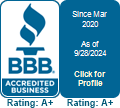
5 Kinds of Venomous Debt to Avoid At All Costs
Debt is toxic in almost every form. To avoid it, one should take every precautionary measure possible. It can jeopardize your financial future. Nobody would be in debt in a perfect world, but that is not how things are in the real world. The way of life of the average man today has significantly changed.
Debt issues are a major cause of stress and according to a 2017 survey by PricewaterhouseCoopers more than 53% of workers stress over finance. But not all types of debt should be the cause of keeping you up late at night worrying. There is what is called good debt and bad debt. A good debt increases your net worth, has a future value, and allows you to manage your finances. But if it does not do this and instead you are unable to pay for it is bad or poisonous debt.
There are various types of debt. No debt is perfect. But some types of debt are more venomous than others. Here are five types of debt that are toxic, but if you have other types of venomous debt you would like to share, feel free to do so in the comment section.
1. HELOC LOANS
A Home Equity Line Of Credit (HELOC) is a home loan in which the lender accepts your home as collateral in exchange for a maximum amount of money to be lent over a predetermined period at “great rates.” It is like a second mortgage and easy to establish. It is simple as writing a check or debit card. HELOCs normally have variable interest rates based on a benchmark rate plus a margin that has been established by the lender. So when interest rates such as Fed funds rates go up the interest rates and the monthly payments also go up. You will then have less money for other things like paying your bills or saving for retirement.
What do you need that is so important that you are willing to risk losing your home for it? Everyone has a unique situation and there are quite a few things that require them to take this risk. Before the financial crisis in 2007-2008, home values escalated and many families saw their equity loans as a new source of cash. Money was pulled out of homes and spent at record paces on luxury items like high-end appliances. Then home values dropped very low and many people lost their jobs. It was an ugly situation.
So before taking out a Home Equity Loan make sure the reason is legitimate. Keep your home secure and safe.
2. CREDIT CARD DEBT
Credit Cards are no doubt a necessary evil. It has been proven by psychologists that we spend more when we use plastic money. No doubt credit cards offer enticing rewards and cash-back offers but they are only a bonus if you are disciplined and you pay the balances in full every month. Otherwise, interest charges could charge you money and outweigh any rewards that accompany the card. Another fact is that it takes tons of purchases to make a decent cash-back amount. You should use credit cards wisely so that they do not end up using you and ruin your financial health.
3. PAY DAY LOANS
Pay Day loans are 10 to 15 times worse than credit card loans. It is a short-term, easy-to-obtain loan that can get you out of a crisis. It is presented by lenders as a friendly, helpful, and practical solution to running out of money before the end of the month. But the bottom line is that for every 100 dollars you borrow the finance charges are $15 to $30 and the annual charges equate to almost 400%. Feeling dizzy?
The Consumer Federation of America is so concerned about the consequences of this long-term debt cycle that they have set up a website to warn potential consumers about the risks of payday loans.
4. 401 (k) LOANS
For some workers, the top reasons for borrowing money from a 401(k) are to pay down or pay off credit card debt. It seems a perfect way to access money as you are borrowing from your account and repaying yourself with interest. However, according to financial advisors, the appeal of these loans masks the downslides. Before obtaining such a loan think twice because:
- You cannot quit your job before paying off the balance of the loan (without severe penalties) unless you can come up with the amount within 60 days. If not it will be considered for distribution and as a bonus parting gift, you get additional penalties and taxes.
- You might be banned from making new subscriptions to your account for six months depending on the rules of your plan
- In addition to the above, you have taken a portion of your retirement savings out of the market.
According to Dave Ramsay, you should only raid your 401(k in the event of a home foreclosure, and should only happen when every other option has been exhausted.
5. CAR LOANS
Almost everyone needs a car these days. But they are depreciating assets. Unlike a student or mortgage loan, you are not investing in yourself or building any equity.
The moment the new car is driven out of the lot it will lose its value and it will lose another 10% in its first year. The value will continue to drop as time passes. Car loans are often the reason why financial plans implode. Nowadays many families have multiple cars so the monthly payments to the banks are possibly higher than $523 per month. Purchasing pre-owned vehicles that are more dependable than in the past is a better option. The most financially responsible course of action is to refrain from frequently changing cars or buying expensive cars. If you want to eventually be able to afford to splurge on a Mercedes or SL 550 Roadster you will need what debt you have to be good so that you can pay off this loan in time.
Any type of loan whether good or bad can be venomous if you do not have the ability to pay it back. You should endeavor to steer away from debt and avoid sabotaging your financial future.


